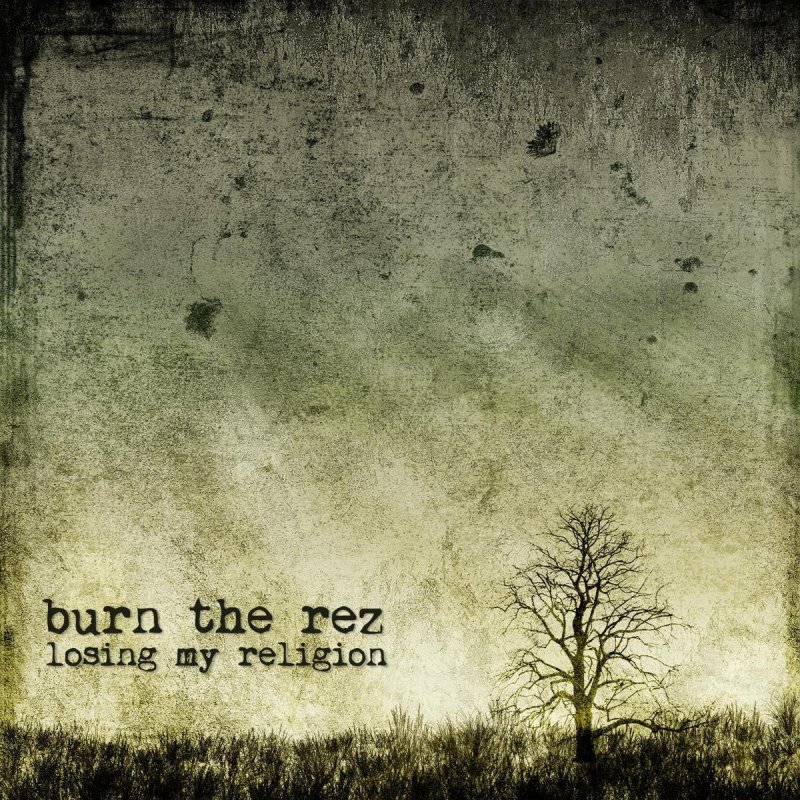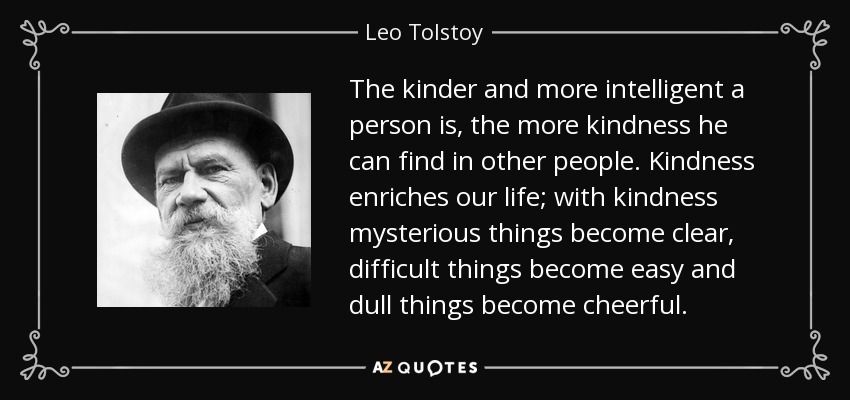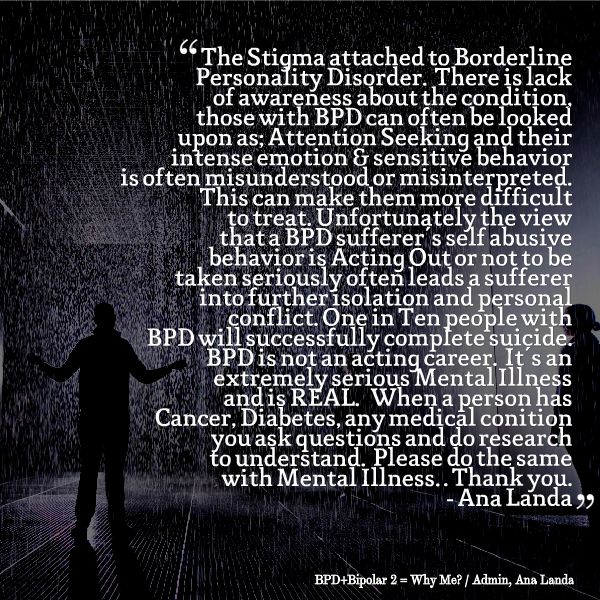Losing your religion
What is the Meaning of R.E.M., "Losing My Religion"
“That’s me in the corner. That’s me in the spotlight.”
If you had the radio on in 1991, you probably bobbed your head to one of the most unlikely Top 40 singles of all time. In between spins of “Right Here, Right Now” by Jesus Jones and C&C Music Factory’s “Gonna Make You Sweat,” lay R.E.M.’s “Losing My Religion,” the track that turned the former kings of college rock into international superstars.
There had been hits before: “Stand,” “It’s The End Of The World As We Know It” and “The One I Love” all raised R.E.M.’s profile, marking them as quirky alt-rock tastemakers. But the morose, mandolin-fueled “Losing My Religion” was the fulcrum for the most unlikely star turn in pop music history. “There’ve been very few life-changing events in our career because our career has been so gradual,” said bassist Mike Mills. “If you want to talk about life changing, ‘Losing My Religion’ is the closest it gets.”
Warner Bros., the band’s label, was initially opposed to using the song, which has no chorus, as the lead single for their watershed album, Out Of Time. For one thing, it was in a minor key, which is rarely the recipe for a hit song, “Hotel California” excepted. (Although R.E.M. are exceptionally skilled at it: see “Driver 8,” “Firehouse,” “Drive,” “Country Feedback.” “You can’t really say anything bad about E minor, A minor, D, and G,” said guitarist Peter Buck. “I mean, they’re just good chords.”) For another, it courted controversy with it’s questioning of faith (although ironically, that would probably be a bigger deal today.)
As the story goes, Buck came up with the song’s signature lick while watching TV with the tape recorder on, while in the midst of fiddling around with the instrument he had just bought. “When I listened back to it the next day, there was a bunch of stuff that was really just me learning how to play mandolin, and then there’s what became ‘Losing My Religion,’ and then a whole bunch more of me learning to play mandolin,” he told author Johnny Black. It was recorded in Bearsville Studios in Woodstock, New York, where Michael Stipe nailed his vocals in a single pass.
It was recorded in Bearsville Studios in Woodstock, New York, where Michael Stipe nailed his vocals in a single pass.
Unlike early R.E.M. songs, “Losing My Religion” features lyrics you can understand. And yet, they were largely misunderstood anyway. Was it sacrilegious? A kiss off to the establishment? Were R.E.M. advocating that you reject the church and stop celebrating Christmas?
In fact, this was not the case. “Losing my religion” is actually an old southern expression for being at the end of one’s rope, and the moment when politeness gives way to anger. But if you were missing that key detail, you’d think that Stipe’s vague imagery was clearly a comment on the Judeo-Christian tradition.
Stipe, who comes from a long line of Methodist ministers and is an admirer of Buddhism, was merely giving a little known southern saying a poetic facelift, by building a wall of evocative words around it. The gravity he conjures with his hurt, reedy keen is immense. “I thought that I heard you laughing, I though that I heard you sing.” When he gets to the line “oh no, I’ve said too much,” it sounds devastating.
“I thought that I heard you laughing, I though that I heard you sing.” When he gets to the line “oh no, I’ve said too much,” it sounds devastating.
The single was accompanied by a moody art house video, which MTV spun constantly. Inspired by a short story from 1,000 Years Of Solitude author Gabriel García Márquez, it was the first to feature Stipe (looking as despondent as possible, in need of a back rub) lip syncing, a practice he had studiously avoided. Stocked with androgynous angels, it begins with a pitcher of spilt milk.
Thanks in part to its ambiguous imagery (“I’ve always felt the best kinds of songs are the ones where anybody can listen to it, put themselves in it and say, ‘Yeah, that’s me,’” said Stipe) the song would penetrate the global consciousness, from Dubai to Des Moines, and became R.E.M.’s biggest hit.
The love from MTV, and the fact that alternative rock bands were supposed to remain as such, created an inevitable backlash. Some said the band had grown too big, prompting Buck to retort: “The people that changed their mind because of ‘Losing My Religion’ can just kiss my ass. ” In many ways, they’ve been struggling with their success, and their image, ever since.
” In many ways, they’ve been struggling with their success, and their image, ever since.
R.E.M. never had another hit quite like “Losing My Religion,” though they’d rule the radio for a heady few years, with modern classics like “Man in the Moon” and “Everybody Hurts.” Then, like all bands, they got older. Drummer Bill Berry left and went back to the farm, spinning them in new artistic directions; their subsequent attempts to make radio friendly singles, instead of making singles that were radio friendly, ended up putting them at odds with a large chunk of their audience. But as R.E.M., Pearl Jam, and countless others have proven, bands don’t really need an audience outside of their hardcore fans. And of that, there are many… and they’re quite religious about it.
Are you a songwriter? Enter the American Songwriter Lyric Contest!
What to Do When You Feel You've Lost Your Faith I Psych Central
Losing your faith can be painful — but the experience can strengthen your convictions and revitalize your spiritual life.
Whether it’s in a higher power, humanity, or yourself, faith can bring your life meaning. So, losing your faith can be a painful and difficult experience.
It’s natural and common to question your beliefs from time to time, whether those beliefs are religious, spiritual, or value-based. You might question the existence of God, or if you’re not religious, you might wonder whether humanity is truly good and whether it’s worth fighting for your values.
Losing your faith is a common experience. Although this process can be confusing, you might walk away with a stronger sense of faith than before. Or, you might refine your value system so that you have a clearer idea of your beliefs.
Faith is a strong belief in something or someone.
Most people associate faith with religion. Religions often encourage followers to believe in God or a Higher Power and their religious teachings.
Different religions have different teachings around faith, and your personal definition of faith might be influenced by your religion.
If you’re not religious, you can have faith in:
- humanity
- the Universe
- a value, such as equality or liberation
- an idea, such as an egalitarian society
- yourself
Faith is a strong, enduring belief in something. When you have faith in something, you’re confident in its abilities.
Your faith likely influences how you behave and think. In times of trouble, an enduring faith tells you to hold on and believe that it’ll work out.
In other words, it gives you hope, even when you have little reason to be hopeful.
Losing your faith can be difficult because you lose that confidence and hope. As a result, you might feel:
- directionless
- doubtful about whether you’ve made the right choices in the past
- silly for believing in something that you now don’t believe in
If you’re religious, your faith probably affects many aspects of your life, from your community and daily activities to what you eat and wear. Losing your faith can mean rethinking all those facets of life, which can disrupt your relationships, routines, and life plans.
Losing your faith can mean rethinking all those facets of life, which can disrupt your relationships, routines, and life plans.
But losing your faith isn’t always a bad thing.
You might use it as an opportunity to reconnect with your values, which can bring new life to your spiritual beliefs. Second-guessing your religion, for example, could be an opportunity to either strengthen your relationship with God or a Higher Power or choose a spiritual path that aligns with your beliefs.
There are many reasons why you might second-guess your beliefs or become disillusioned with religion or society.
You might lose faith after:
- traumatic experiences that make you doubt whether your god is truly benevolent
- mental health concerns, such as depression or anxiety
- experiencing bereavement and wondering whether life is worthwhile
- feeling lonely and disconnected from others
- life changes that make you reassess your beliefs
- experiencing significant personal growth
In terms of religion, you might lose faith if:
- you encounter people of your religion that don’t practice what they preach, so to speak
- you witness or experience abuse or discrimination from religious leaders
- you re-evaluate your values and find that it doesn’t match your religion
- certain religious teachings ring untrue for you
It’s common to experience doubt. But sometimes you might go through a change of faith where you actively decide to pull back from, or change, your religion. If this happens, try to give yourself time to mourn your previous faith.
But sometimes you might go through a change of faith where you actively decide to pull back from, or change, your religion. If this happens, try to give yourself time to mourn your previous faith.
If you’d like to regain your faith, there are a few ways to do so.
For example:
- Journaling: Journaling can help you process your thoughts and reconnect with your values. This 2018 study found that journaling for 12 weeks significantly reduced mental distress in anxious adults
- Prayer: If it’s a part of your practice, prayer can bring you clarity and strengthen your conviction.
- Meditation: Meditation can help you connect with a higher power or yourself. Additionally, research suggests that it could help you stress less, focus more, and feel less lonely
- Community: Connecting with others who share your faith can re-ignite your faith and help you feel less alone. As a 2017 review discussed, several studies have shown that social support when going through stressful events can help improve health and quality of life.

You might also want to think about when you’ve felt faith strongly before and recreate that situation. Perhaps your faith in humanity felt strengthened when you volunteered at your local shelter, or you felt closer to God or a Higher Power when you sat in nature and meditated.
If religion or spirituality has lost its appeal, consider the following:
- joining a new group, such as a new Bible study group or a new meditation class
- going on a religious or spiritual retreat
- embarking on spiritual self-study
- attending spiritual seminars or classes
- volunteering for a cause that resonates with your values
If you’re feeling disillusioned with your congregation or religion, consider speaking with a religious leader about your concerns.
If your religion feels misaligned with your values, you could try attending a different service or visiting a different place of worship — one that’s more aligned with your values and beliefs.
Many people re-think their faith when they go through traumatic or life changing events. Consider speaking with a mental health professional if you’ve experienced a major life change or trauma.
Therapy can help you process the event and provide a safe space to talk about losing your faith.
Whether you’re religious, spiritual, or neither, it’s natural to have doubts about your faith from time to time. If you’re losing your faith, it’s possible to re-ignite your sense of conviction.
You might sometimes feel that you’ve lost your faith for good. You might lose your religion or change your spiritual beliefs and practices. While this loss can be painful, it’s possible to overcome it and thrive.
Seven things not to talk about at work
Fotolia / PhotoXPress
In recent days, political debates have flared up in offices and on the streets. Some of them end quite peacefully, and some lead to conflicts that will subsequently affect the interaction between employees and departments. Sometimes a conversation that began, it would seem, quite peacefully, ends with accusations, and even personal insults. Fault lines run between individuals and departments that yesterday were still enthusiastically working on common projects.
Sometimes a conversation that began, it would seem, quite peacefully, ends with accusations, and even personal insults. Fault lines run between individuals and departments that yesterday were still enthusiastically working on common projects.
Is it worth discussing politics with colleagues? And what other topics should not be brought up in a conversation in the office to avoid confrontation?
There are no universal tips. In any case, you will have to think each time and decide for yourself whether this or that topic is suitable for talking with colleagues, clients and business partners. Much depends on the very situation in which you start a conversation, on the origin of your interlocutor (in different countries and cultures, various topics may be banned). And yet I will try to give some universal tips that will be useful to you.
1. First of all, it is not customary to talk about politics in a good society. Yes, each of us has a solid stock of knowledge and views in the field of history, political science, tactics and strategies of action in various conditions. Yes, everyone considers himself the owner of the only correct point of view. But if you prefer to keep the office working rather than sowing discord, refrain from discussing political events.
Yes, everyone considers himself the owner of the only correct point of view. But if you prefer to keep the office working rather than sowing discord, refrain from discussing political events.
2. The second forbidden topic is religion. You almost never know what the religious views of your interlocutor and his attitude towards religion in general are. Therefore, any of your statements on this topic may accidentally offend him, upset or anger him. A believer may not appreciate your jokes on religious topics, and an atheist will not always support a conversation about the intricacies of the sacrament of confession or about the history of Orthodoxy. A person may not outwardly show a special reaction to your statements, but he will draw conclusions for himself. Therefore, even in a conversation with employees with whom contact has already been established, it is worth being careful. By the way, congratulating colleagues, and even more so clients, on religious holidays, think about whether it would be appropriate. For example, not all partners from Tatarstan will necessarily be delighted with an Easter card. And in other regions and cities, our society is by no means mono-ethnic and mono-religious.
For example, not all partners from Tatarstan will necessarily be delighted with an Easter card. And in other regions and cities, our society is by no means mono-ethnic and mono-religious.
3. Many people divide their lives into two main parts - work and family. Therefore, if the conversation is not about work, then in one way or another it affects the family (going to the museum with your significant other or children, family vacation, playing sports together, your spouse's opinion about the new advertising of your company, etc.). And if the interlocutor himself easily starts a conversation about his loved ones, which you are ready to support, there is nothing reprehensible in this. But if you don’t know what the situation is in your colleague’s family (perhaps he is getting divorced, lost a loved one or cannot find a common language with growing children) - you should not raise this topic and ask him uncomfortable questions. In addition, you should not complain about your other half or keep up such conversations. Support the colleague himself if he has a difficult situation, but there is no need to discuss his personal life in a negative way. Life will get better, but awkwardness may remain.
Support the colleague himself if he has a difficult situation, but there is no need to discuss his personal life in a negative way. Life will get better, but awkwardness may remain.
Again, be aware of who you are talking to. In some cultures, talking about family is generally considered indecent.
Moreover, it is not worth discussing the details of the intimate life and passions of colleagues. This topic is very complex, personal and not suitable for conversations at work (unless you are a doctor of the relevant profile).
4. Everything that concerns individual tastes (in music, literature, painting, clothing, cinema, etc.) can be discussed, but with caution. Loudly stating that you hate the Beatles or consider modern domestic pop music to be the only worthy music, you can forever lose the trust of a colleague or client with the opposite opinion. They say that tastes differ. So do not give reasons for such disputes, talk about personal preferences carefully and do not go to extremes.
5. You can only talk about retired employees as dead: either good or nothing. Regardless of the reason for their dismissal, regardless of which company your specialist left. Discussing behind the back of any other person will not do you credit. By the way, this also applies to current employees. But you can praise - both your current colleagues and those who have left - as much as you like. Preferably, of course, for specific merits.
6. Never, under any circumstances, discuss the salaries of your co-workers. Even if it is not prohibited by the internal charter of your organization, asking a person questions about his income, showing off his own or complaining is simply indecent. And even more so to count other people's money. The only option when you have the right to do this: you are the leader and you are discussing the budget for the next period. Yes, and of course, you can also discuss the possibility of increasing your own salary with your immediate supervisor or an employee of the personnel department.
7. Last but not least taboo: no talking about race, nationality, gender or other differences. At the very least, you don't want to be accused of discrimination and chauvinism, do you? In addition, touching on such topics, you can provoke a conflict between the interlocutors.
To determine if a particular topic is appropriate for a particular situation, try answering the questions: would the interlocutors be interested or useful to hear it, would they be comfortable, do you want them to know about some details of your life outside of work and want to whether you yourself in response to receive a portion of similar information. If all answers are positive, feel free to discuss the chosen topic. If not, do not start a conversation and do not hesitate to politely inform the interlocutor who started it that you do not consider this topic acceptable for communication.
Written by Director of Human Resources at BDO Unicon Outsourcing
Media News2
Is advertising distracting? Subscribe to hide itThe feelings of believers against the rights of atheists
So, it turns out that in relation to Islam, freedom of speech is seriously limited. Firstly, because it's scary - the tragic fate of the Dutch director Theo van Gogh is not very inspiring. And secondly, because it is also unpleasant, since any criticism of the ideology of Islam threatens its author with the label of “Islamophobe” and even “xenophobe”. It is enough to read how furiously The Guardian attacks the scientist and publicist Sam Harris, who regularly criticizes Islam, as the desire to follow in his footsteps disappears. As a result, the politically correct position prevails: "All religions are good and teach only good, and all evil comes from people who have perverted these beautiful religions." But for me, for example, it is rather difficult to understand what kind of good such a concept as “jihad” teaches us? I am sure that there are many theologians who will explain to me in detail the peaceful nature of Islam and the metaphorical, completely non-violent meaning of jihad, armed with suitable surahs of the Koran and quotations from hadiths. I am glad that they are believed by hundreds of millions of so-called.
Firstly, because it's scary - the tragic fate of the Dutch director Theo van Gogh is not very inspiring. And secondly, because it is also unpleasant, since any criticism of the ideology of Islam threatens its author with the label of “Islamophobe” and even “xenophobe”. It is enough to read how furiously The Guardian attacks the scientist and publicist Sam Harris, who regularly criticizes Islam, as the desire to follow in his footsteps disappears. As a result, the politically correct position prevails: "All religions are good and teach only good, and all evil comes from people who have perverted these beautiful religions." But for me, for example, it is rather difficult to understand what kind of good such a concept as “jihad” teaches us? I am sure that there are many theologians who will explain to me in detail the peaceful nature of Islam and the metaphorical, completely non-violent meaning of jihad, armed with suitable surahs of the Koran and quotations from hadiths. I am glad that they are believed by hundreds of millions of so-called. moderate Muslims, and I myself am ready to believe them, but I am embarrassed by the presence of at least as many theologians for whom jihad is the physical destruction of the infidels, especially if these infidels have somehow offended the very “feelings of the believers”. And they also support their position with many quotes from the same sources, and the number of their supporters is also measured in millions.
moderate Muslims, and I myself am ready to believe them, but I am embarrassed by the presence of at least as many theologians for whom jihad is the physical destruction of the infidels, especially if these infidels have somehow offended the very “feelings of the believers”. And they also support their position with many quotes from the same sources, and the number of their supporters is also measured in millions.
When I hear that the main thing for
Russia is not to lose its faith,
I want to start asking
clarifying questions
It is clear that both theologians accuse each other of perverting religious dogmas , and disputes over which of them interprets the Qur'an correctly will never end. And this is only the beginning of a conversation about the "traditional values" of Islam and their place in modern society. How, for example, are these values consistent with the principle of gender equality? But at least I am glad that, in spite of everything, the public discussion on this topic is gradually becoming more active. And here I agree with the Swedish publicist (by the way, of Kurdish, that is, Muslim origin) Dilsa Demirbag-Sten: “In a democracy, everyone has the right to insult religions. Religions and ideologies have no rights.” Or, as an Iranian taxi driver, who has been living in Sweden for 20 years, told me on the way to the Gothenburg airport: “Let the mullahs rule in their mosques, but don’t interfere in our lives.” According to sociological studies, most European Muslims agree with him. But the secular majority is always rather quiet, because for them the personal is more important than the public. But the voices of those who demand the politicization of religion, especially Islam, are loud and insistent.
And here I agree with the Swedish publicist (by the way, of Kurdish, that is, Muslim origin) Dilsa Demirbag-Sten: “In a democracy, everyone has the right to insult religions. Religions and ideologies have no rights.” Or, as an Iranian taxi driver, who has been living in Sweden for 20 years, told me on the way to the Gothenburg airport: “Let the mullahs rule in their mosques, but don’t interfere in our lives.” According to sociological studies, most European Muslims agree with him. But the secular majority is always rather quiet, because for them the personal is more important than the public. But the voices of those who demand the politicization of religion, especially Islam, are loud and insistent.
Everything is tougher and easier in Russia. Administrative mechanisms are at work here, and the editors of The Onion would have long ago been brought in for extremism. Here a firm course has been taken to support "traditional religions", primarily Orthodoxy as the "spiritual basis of the state. " Moreover, if American fundamentalist Christians are mainly passionate about the fight against the theory of evolution and proving the literal fidelity of biblical postulates such as the Flood and the young age of the Earth, then in Russia few people go into such details, and the emphasis is on the unique state-forming nature of the local version of Christianity. And when I hear every day that the main thing for Russia is not to lose its faith, that the enemies of the country want to destroy it by destroying Orthodoxy and “belittling the spiritual foundations,” then I want to start asking clarifying questions. For example, what competitive advantage in the global economy will universal religiosity give Russia? Is there an example of a country in the world that has improved its quality of life through faith? I understand that these questions may seem naive and even blasphemous (I hope at least not extremist). But still, here is China, which produces almost everything and in gigantic volumes, pumping up economic and geopolitical muscles along the way.
" Moreover, if American fundamentalist Christians are mainly passionate about the fight against the theory of evolution and proving the literal fidelity of biblical postulates such as the Flood and the young age of the Earth, then in Russia few people go into such details, and the emphasis is on the unique state-forming nature of the local version of Christianity. And when I hear every day that the main thing for Russia is not to lose its faith, that the enemies of the country want to destroy it by destroying Orthodoxy and “belittling the spiritual foundations,” then I want to start asking clarifying questions. For example, what competitive advantage in the global economy will universal religiosity give Russia? Is there an example of a country in the world that has improved its quality of life through faith? I understand that these questions may seem naive and even blasphemous (I hope at least not extremist). But still, here is China, which produces almost everything and in gigantic volumes, pumping up economic and geopolitical muscles along the way.














